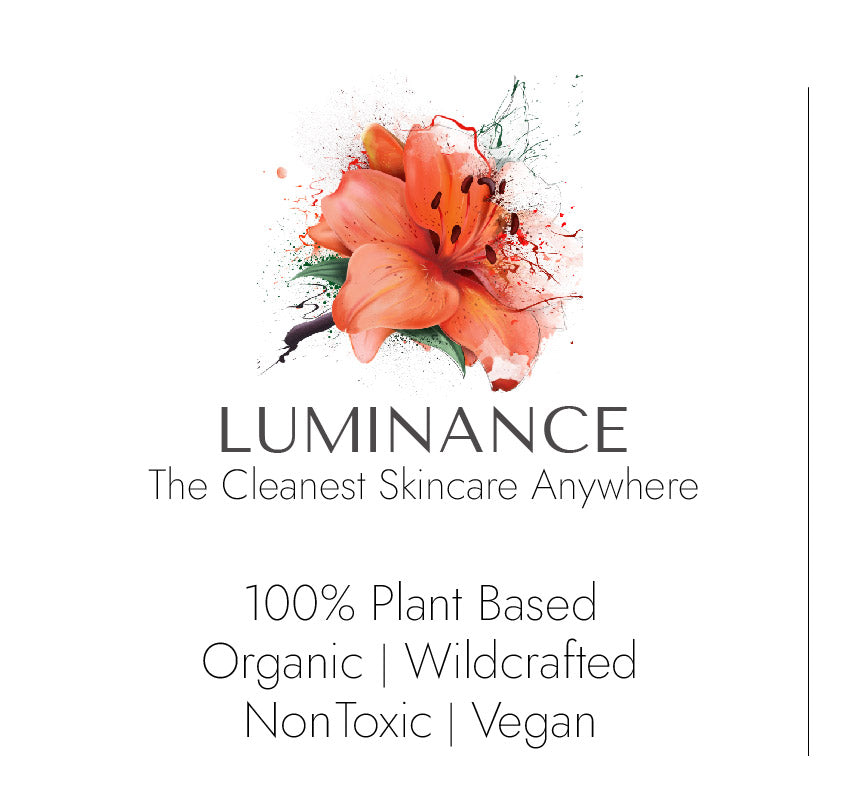Achieving Ideal Skin Texture Is An Essential Component For Presenting A Healthy, Supple, And Radiant Complexion.
The Importance Of Skin Texture And A Few Of The Key Skincare Ingredients That Take The Texture Of Your Skin To A New Level.
The texture of your skin is an often-overlooked, yet vital aspect of a radiant complexion. When we discuss skin texture, we're referring to the surface feel and appearance of the skin. Ideally, skin should be smooth, soft, and free from enlarged pores, bumps, and imperfections. Just like other aspects of skin health, skin texture is influenced by a variety of factors: genetics, environment, age, and skincare routines.
Thankfully, nature has bestowed us with an array of ingredients that can enhance and refine skin texture. Let's delve into some of these ingredients, exploring their origins, key compounds, and their contributions to enhancing skin texture.
Jojoba Oil
- Origin and History: Extracted from the seeds of the jojoba plant (Simmondsia chinensis), this oil has roots in the beauty practices of Native American tribes, who valued its moisturizing and therapeutic properties.
- Key Compounds: Wax esters, vitamins E and B-complex.
- Contribution to Texture: Jojoba oil is remarkably similar to the skin's natural sebum, ensuring a balanced moisturization without causing breakouts. The presence of wax esters aids in smoothing the skin and minimizing the appearance of fine lines.
Argan Oil
- Origin and History: Derived from the fruit kernels of the Argan tree (Argania spinosa) native to Morocco, Argan oil has long been a staple in Moroccan skincare for its rejuvenating benefits.
- Key Compounds: Vitamin E, essential fatty acids, and antioxidants.
- Contribution to Texture: The vitamin E and fatty acids in Argan oil work synergistically to hydrate and soften skin, resulting in a smoother texture. It also promotes skin elasticity, thereby refining skin surface.
Rosehip Oil
- Origin and History: Extracted from the seeds of the wild rose bush (Rosa moschata or Rosa rubiginosa), its use can be traced back to ancient civilizations, including the Egyptians and Mayans, for its healing properties.
- Key Compounds: Vitamins A and C, essential fatty acids.
- Contribution to Texture: The natural retinoids present in Vitamin A help in cell turnover, making it beneficial in reducing scars and improving texture. Meanwhile, Vitamin C aids in collagen production, ensuring a smooth and firm skin surface.
Tamarind Seed Oil
- Origin and History: Derived from the seeds of the tamarind tree (Tamarindus indica), this oil has long been used in traditional medicine across Asia and Africa.
- Key Compounds: Polyphenols, flavonoids, and antioxidants.
- Contribution to Texture: Tamarind seed oil, with its high antioxidant content, combats free radicals, preventing premature aging and skin damage. Its hydrating nature ensures a plump and smooth skin texture.
Pomegranate Seed Oil
- Origin and History: Extracted from the seeds of the pomegranate fruit (Punica granatum), it has been a revered beauty secret in regions spanning from India to the Middle East.
- Key Compounds: Punicic acid, antioxidants, and anti-inflammatory agents.
- Contribution to Texture: The oil promotes cell regeneration and collagen production, ensuring a youthful skin texture. Its anti-inflammatory properties also assist in soothing and refining the skin's surface.
Sea Buckthorn Oil
- Origin and History: Sourced from the berries of the Sea Buckthorn plant (Hippophae rhamnoides), its benefits were recognized by Tibetan and Mongolian traditions.
- Key Compounds: Vitamins A, C, E, omega fatty acids.
- Contribution to Texture: The rich content of fatty acids and vitamins ensures optimal skin hydration, reducing roughness and scaling. It also aids in cell turnover, presenting a smoother skin appearance.
Moringa Oil
- Origin and History: Extracted from the seeds of the Moringa tree (Moringa oleifera), it has been a cherished beauty ingredient in ancient Egyptian and Roman societies.
- Key Compounds: Vitamins A and C, behenic acid.
- Contribution to Texture: The vitamins in moringa oil help in skin cell regeneration, ensuring a refined texture. The oil's deep moisturizing effect provides a smooth, soft surface to the skin.
Rice Bran Oil
- Origin and History: Derived from the outer layer of rice (Oryza sativa), it's a staple in Japanese skincare, celebrated for its skin-smoothing properties.
- Key Compounds: Gamma oryzanol, Vitamin E, ferulic acid.
- Contribution to Texture: The components of rice bran oil naturally exfoliate the skin, ensuring the removal of dead cells and revealing a smoother, clearer texture.
Macadamia Oil
- Origin and History: Sourced from the macadamia tree (Macadamia integrifolia), native to Australia. Indigenous cultures have used the oil for its moisturizing properties.
- Key Compounds: Palmitoleic acid, oleic acid.
- Contribution to Texture: Its rich content of monounsaturated fats nourishes and hydrates the skin deeply, smoothing out any rough patches and improving overall texture.
Chamomile Extract
- Origin and History: Derived from the daisy-like flowers of the chamomile plant (Matricaria chamomilla or Chamaemelum nobile), it has been used since ancient Egyptian times for its therapeutic properties.
- Key Compounds: Alpha-bisabolol, chamazulene.
- Contribution to Texture: Chamomile's soothing properties help reduce skin irritations and inflammations, ensuring a more uniform and refined skin texture.
In Summary
A refined skin texture not only enhances the skin's appearance but also ensures that products are absorbed more effectively and makeup sits better. The above natural ingredients, each with their unique properties, work in harmony to smoothen, soften, and refine the skin's texture. Integrating these into your skincare routine can pave the way for a complexion that's not only visibly smooth but also feels soft to the touch.


